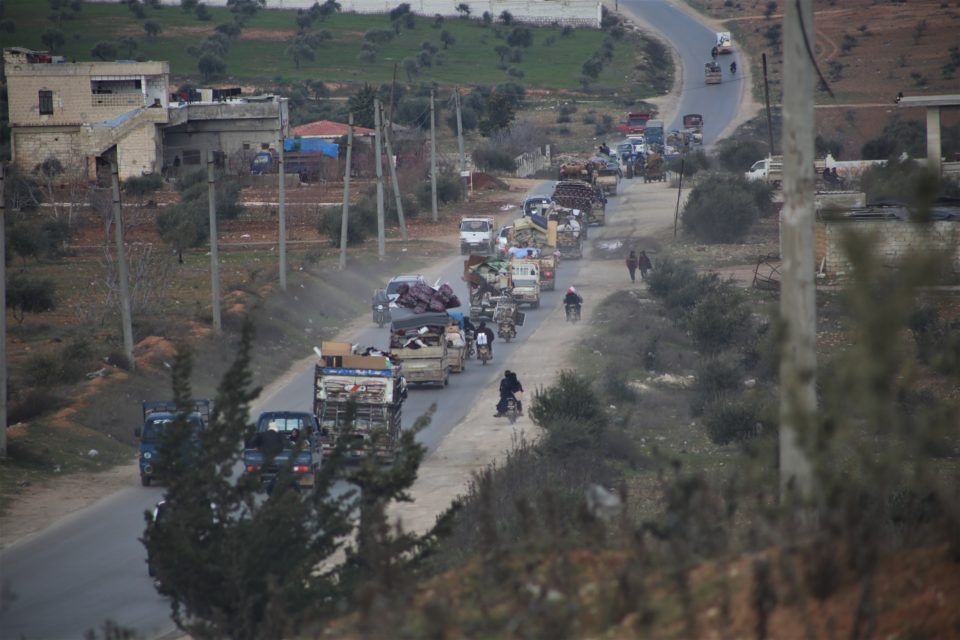 Stories
Stories
March 12, 2020 • 3 min read
GOAL Syria staff member, Saad, is married with a two-year-old son and a three-year-old daughter. Here he shares the trauma of his family’s displacement from Maaret Alnoaman city in North Western Syria at the end of December.

"I remember beautiful days I spent in our neighborhood and in our home built by my father and grandfather. We built it with our hands, stone by stone. I remember my childhood and school days. I feel sadness and pain, mixed with a longing to return again."
In December my family was forced to flee from our home in the city of Maaret Alnoaman due to intense shelling. This was the second time we were displaced in 2019 and the fifth time we were displaced since the beginning of the war nine years ago.
The situation deteriorated dramatically on December 17th as bombardments hit the city and surrounding villages. It is impossible to put into words how bad things were. People were being killed. Things were worse than they had ever been. My brother got hurt in the face and his shop was destroyed. All the people in the city were leaving.
On December 20th, my family took the decision to join the thousands on the move in order to escape death. My wife and children, my parents, my sisters (one who has five children), my brothers (who have 9 children between them), my parents-in-law and their sons and daughters-in-law moved to the village of Birat Armanaz. Families were fleeing the city, carrying nothing other than their children. It was like Judgement Day.
The next day, on December 21st, my brother and I went back to the city with a pickup car to retrieve things from our home and the homes of our relatives. We could not take the international highway, because war planes targeted everything moving on that road. In fact, that day a car carrying displaced people on the highway near Al-Dalleh Square in Maaret Alnoaman was targeted. Everybody was killed, including children. Their corpses were burned.
We took a route through Alzawya mountain. Fog was thick and there were thousands of cars and trucks on that route, causing many accidents. Tens of thousands of displaced people were walking with their families, not knowing where they were going or where they would sleep. Thousands were lying on the ground in the open.
When we arrived, we found our city empty. The scene of destruction and the smell of blood were beyond words. It was a city of ghosts with no water, electricity, internet or communication. A few people, like us, had come back to get their belongings to protect them from the harsh winter and severe cold.
Over two days we moved luggage and belongings to Birat Armanaz. We gave lifts to displaced people we met on the road. On the journey out of the city on December 22nd with our last batch of furniture, the shelling was really bad. War planes overhead were targeting us, so we left everything behind us and fled. The next day, we learnt that our entire neighborhood was shelled and, along with the rest of our neighbourhood, our home was destroyed.
We were lucky that we got out unscathed. Yet despite all of this, we still have hope of returning to our city. I remember beautiful days I spent in our neighborhood and in our home built by my father and grandfather. We built it with our hands, stone by stone. I remember my childhood and school days. I feel sadness and pain, mixed with a longing to return again.
Despite pain, sorrow and the deteriorating situation, we have stayed in our country. We wonder if we will be able to continue to stay. We wonder what our next destination is, are we going to be homeless? Or refugees? We do not know.
I am now living with four families in the same house. The population of my home city is scattered. Some have gone to Turkey, some have gone to camps and others do not know where to go.
**Names in this story were changed.
